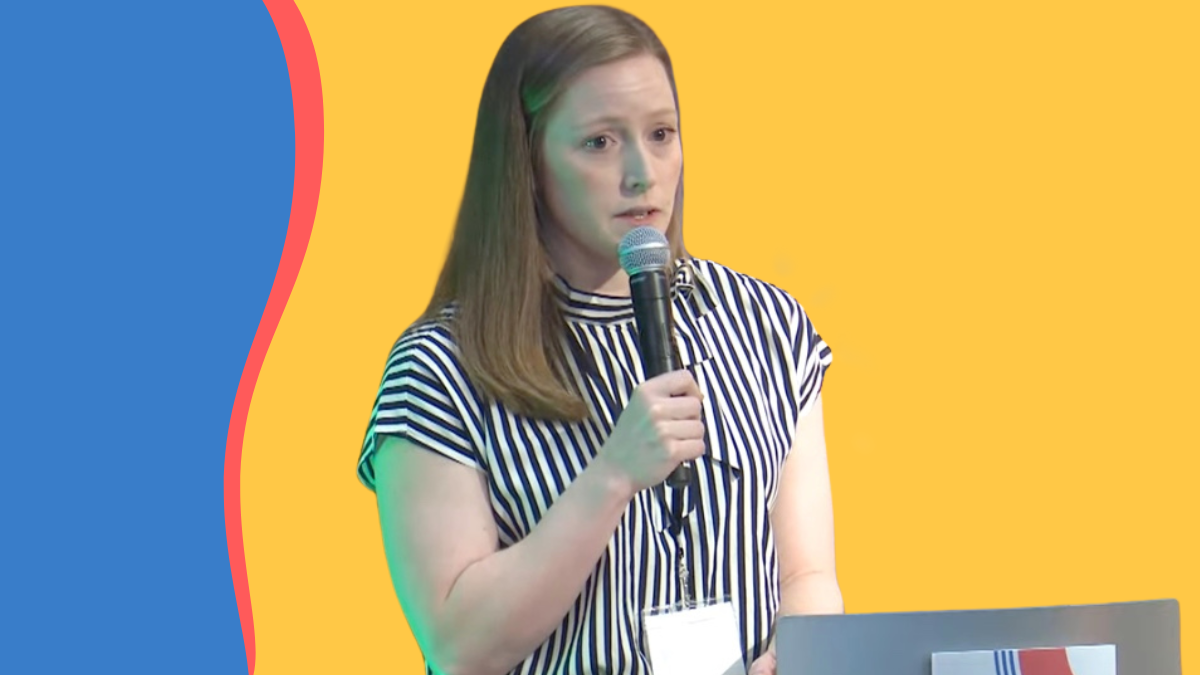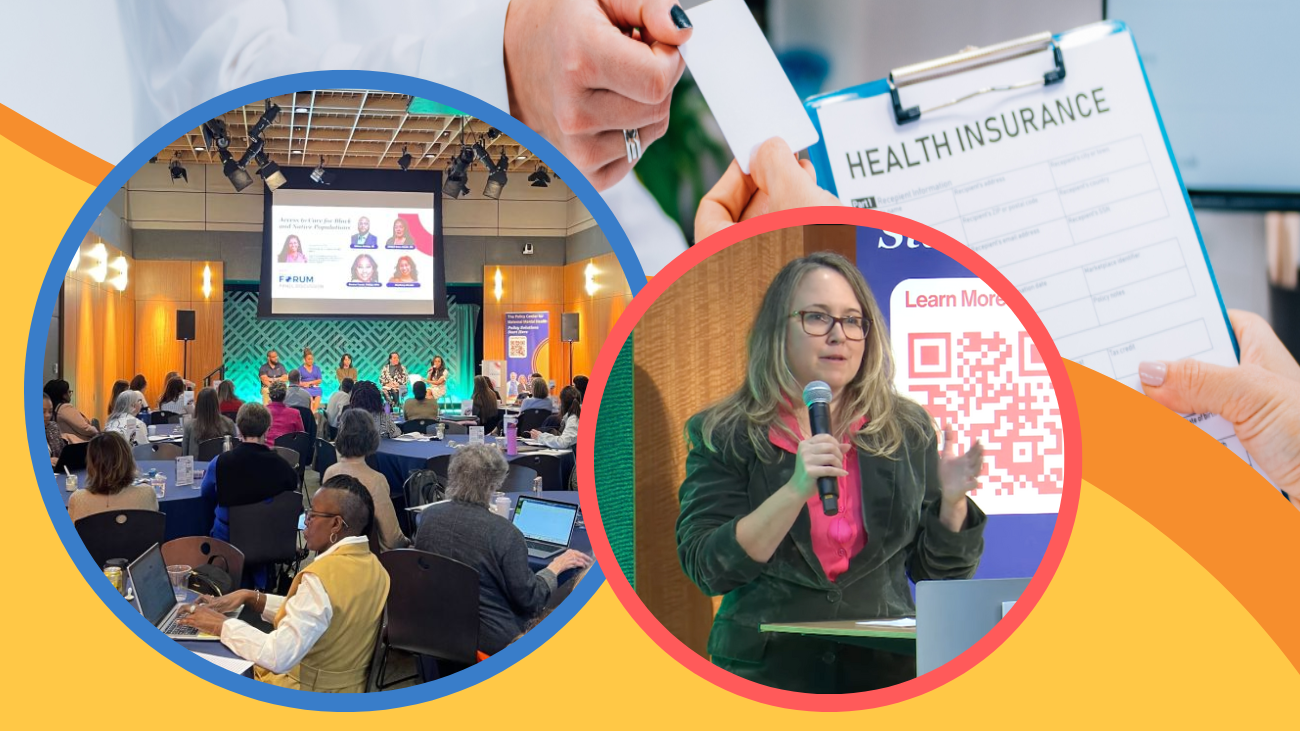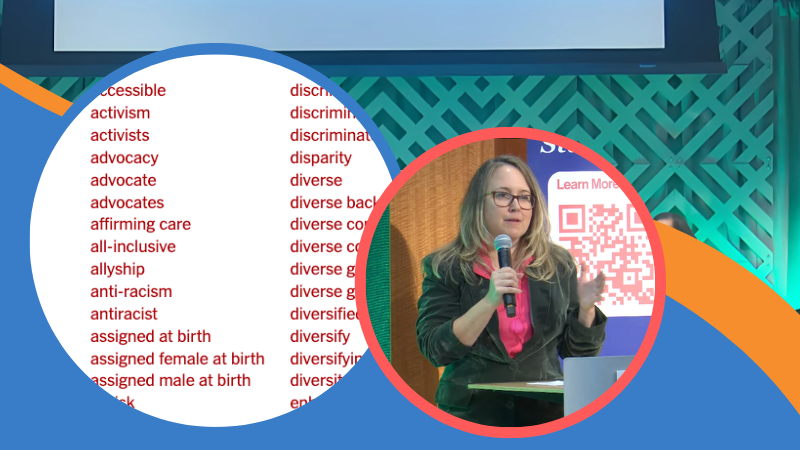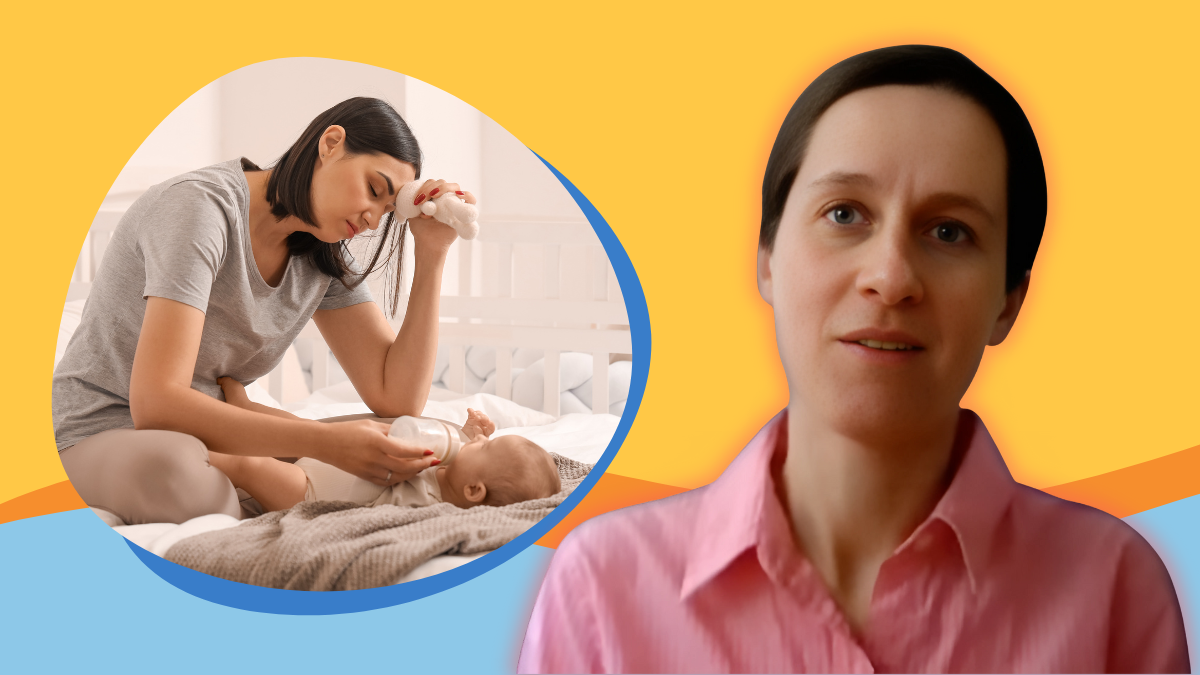When Emily Johnson became a mom, she was prepared for the sleepless nights, the feedings, and the diapers. What she wasn’t prepared for was how deeply she would struggle with anxiety and suicidal thoughts, and how the health care system would force her to navigate alone.
Below is Emily’s story, which she shared at the 2025 FORUM.
“My name is Emily, and I’m the mom of an almost two-year-old boy. I love being his mom, and he brings me more joy than anything in the world.
My husband and I were excited about the pregnancy, but it was harder on me than I expected. I had round-the-clock nausea well past the first trimester when everyone says it will get better.
I was in labor for over 30 hours, ending in hemorrhage. I passed out from exhaustion shortly after my son was born, so they had to give him donor milk while the medical team worked to stop my bleeding.
But the biggest challenge came after we brought our baby home.
I felt overwhelmed and anxious about everything. Breastfeeding wasn’t going well, but I was determined to make it work because I kept hearing that it was the best way to feed my baby.
I never wanted to be the one to clean the pump or bottle parts or be the last one to touch him before he slept because I was terrified I would make a mistake and harm my baby.
My anxiety eventually took on a life of its own, untethered to any specific concerns. It was with me all day, and eventually, it was with me all night, too. I would go to sleep only to wake up an hour later, filled with unshakable anxiety, despite not having slept through the night in weeks.
My appetite had slowly been disappearing since we arrived home. My family would beg me to eat something, and I’d try, but I couldn’t keep food down.
Around the same time, I began experiencing intrusive thoughts about death and dying. I remember telling my husband, “My brain is showing me pictures of you as a single dad.” I didn’t want to be alone. I was terrified of these thoughts and of myself.
After one of our pediatrician appointments, I broke down in the car. The doctor had told us to prepare for a growth spurt. I remember telling my husband, “He’s growing so fast, and I’m missing all of it.” He asked me, “What do you mean? You’re right here.” But I wasn’t – I wasn’t myself, and I had lost my ability to feel joy.
We tried desperately to get help. My husband called my health system’s mental health department for me and was told the soonest appointment would be in a few months. He asked if there were any exceptions to this for OB patients and was told no.
I also had several visits with my OB clinic. At one, I took the EPDS [Edinburgh perinatal depression screening questionnaire] and screened positive for thoughts of self-harm. The doctor gave me an “urgent” mental health referral, handed me a generic and overwhelming list of resources, and sent me on my way.
The following day, I got a call from the mental health department, offering me a 1-hour therapy appointment in 6 days. But at the time, I felt like my body was shutting down, and my mind was attacking me. I didn’t have 6 days left in me.
Experiences like these led me to believe that I was alone in this struggle. If this was common, there would be a better process, one that recognized the urgency of the situation and the danger I was in—or so I thought.
At 15 days postpartum, I reached my breaking point.
As usual, I woke up soon after falling asleep. I got out of bed, hugged my dog, and went to the nursery.
I sat in the rocking chair, scrolling my phone, desperately searching for evidence that anyone had ever recovered from something like this. Plenty of articles came up with similarities to my story. But many, if not most of them, ended in tragedy. I remember the overwhelming panic, guilt, and dread as I concluded that was how my story was going to end too, and began the devastating process of thinking about my options. Most of all, I felt grief—grief for the life I once had, for all I was going to miss, and for the pain I knew I was going to cause my family.
Later that night, my husband Alex found me on the floor in the nursery.
He asked me if I was thinking of suicide, and I nodded. He asked if I had a plan, and I said, “Not yet, but I am thinking about it. I am so scared. I don’t want it to hurt. It already hurts so much.”
He asked if I would go to the emergency room, and I said no. Each time I reached out for help, people assured me that help was available, but the help never materialized. I couldn’t bear the thought of that happening yet again.
Alex helped me survive the night. The next day, my aunt- a nurse- called.
She told me she knew I was hurting, and she knew I was scared. She told me that this is something that can happen to new moms and that we would find someone who could help me, even if we hadn’t been able to find that person yet. And she told me that what I needed to do, for myself and for my family, was go to the ER. So I did.
I was admitted for three nights to a general inpatient psychiatry ward, separated from my family each night. That experience, once again, gave me the impression that I was the first to ever walk this road. The staff seemed embarrassed to walk in on me pumping. Some gave me a puzzled look when I presented them with breastmilk to refrigerate. They continued offering me only hydroxyzine for my anxiety, which felt like putting a bandaid on a gunshot wound. At no point did anyone say, “This is common in new moms, and you will get better.”
While I was in the hospital, my mom did a lot of research and eventually found the Redleaf Center at Hennepin Healthcare, which has a Mother-Baby partial hospitalization program, just 15 minutes from my home in Minneapolis, Minnesota.
I spent 4 weeks attending this program with my son Julian in tow, slowly learning how to trust myself and my ability to care for him. I had the chance to see people specifically trained in maternal mental health. They prescribed me new medications and checked in on me in the days afterward to closely monitor how I was responding. In this program, I met several other moms who were going through similar things, some of whom are friends to this day. Throughout my time at Redleaf, I felt seen as a whole person in the context of my new role as a mom.
This program, without a doubt, was my lifeline. It didn’t completely cure me, but it reduced the severity of my symptoms and gave me the tools I needed to survive. It took me nearly a year—and many other incredible resources—to feel like the battle was truly over. But the Redleaf program set me on the path to recovery, and for that, I am forever grateful.”
Emily’s story highlights the gap obstetric care providers and patients face with a lack of care navigation support, as well as the power of outpatient day treatment programs that specialize in maternal mental health. Only 19 states offer such programs right now and insurer approval can, at times, be daunting. To address these challenges, the Policy Center is:
- Urging health insurers and health plans to expand high-risk maternity case management/care coordination and navigation support to those suffering from maternal mental health disorders in both pregnancy and the postpartum period. The onus should be on the insurer/plan to find the patient in-network care (working with the carveout mental health insurer/plan as needed), not the provider, and certainly not the patient. Providing this type of care coordination will also allow insurers/health plans to receive credit for the HEDIS perinatal mental health “follow-up” measures.
- In 2025-2026, supporting leaders from the Marce Society to create “Level of Care” guidelines for maternal mental health. These guidelines will support both prescribing provider and insurer decisions about symptoms that qualify for intensive outpatient and partial hospitalization services.
By prioritizing care coordination, strengthening insurer responsibilities, and standardizing levels of care, we are working toward a system where moms like Emily no longer fall through the cracks.



